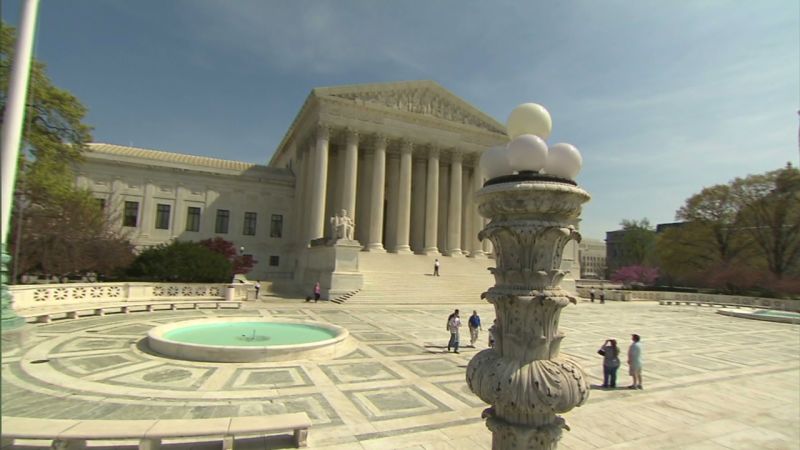Court ruling on strip searches is unjust
Editor’s Note: Sherry Colb is a professor of law and Charles Evans Hughes Scholar at Cornell University Law School.
Story highlights
Sherry Colb: Supreme Court ruling on strip search was disturbingly insensitive
She says ruling lets authorities strip search those arrested for even minor offenses
She says court must protect inmates’ privacy by scrutinizing law enforcement procedures
Colb: A rubber-stamp on strip searches without reasonable suspicion is unjust
CNN
—
On Monday, a 5-4 majority of the U.S. Supreme Court approved strip searches of everyone entering jail after arrest for even the most minor offense. The ruling exposed a disturbing insensitivity.
The plaintiffs in the case, Florence v. Board of Chosen Freeholders, were arrested for relatively minor offenses, such as walking a dog without a leash. Their lawsuit challenged a policy in two New Jersey detention facilities where all arrested people are strip-searched before joining the inside population.
In one facility, this means “a complete disrobing, followed by an examination of the nude inmate … by the supervising officer, which is then followed by a supervised shower with a delousing agent.” In the other facility, the booking process “required groups of 30 to 40 arrestees to enter a large shower room, simultaneously remove all of their clothing, place it in boxes and then shower.”
If you have ever driven over the speed limit in New Jersey, it could be you in that shower.

The Supreme Court quite recently accepted the idea that the Constitution requires a greater justification for strip searches than for less-intrusive searches. In Safford v. Redding, decided in 2009, the court said that searches exposing the breasts and pelvic area were “categorically distinct, requiring distinct elements of justification.”
People in jails and prisons, however, have long enjoyed less privacy than free people.
In Bell v. Wolfish, the Supreme Court upheld a policy that subjected all detainees to visual body cavity searches after they had visitors. It emphasized that detention facilities had a special need for heightened security that weighs heavily against inmates’ privacy.
For similar reasons, the court in Florence ruled in favor of strip searches.
No one would deny that U.S. prisons and jails are dangerous places filled with weapons, drugs and other contraband. Achieving security in such institutions is crucial. But that does not mean strip searches are either a necessary or an effective means of doing so. The Supreme Court has an obligation to protect the privacy of inmates by scrutinizing law enforcement policies that concern people who have not even gone to trial for their alleged misdemeanors. The court’s failure to do so is an abdication of its responsibilities.
Prison and jail officials have exceedingly difficult jobs and are entitled to flexibility in their efforts to secure the institutions they run. Strip searches, however, are extremely intrusive, humiliating and frequently traumatic, as the Supreme Court has acknowledged. Even in the Supreme Court building itself, where the need for security is undoubtedly great, guards do not strip search members of the public who come to watch oral arguments.
Imagine the fallout if they did.
The plaintiffs in Florence, it is worth remembering, are not very different from the crowds that gather outside the Supreme Court to hear oral arguments. They were not charged with or even suspected of drug-dealing, assault or other violent conduct. They are people who sometimes drive over the speed limit, who walk their dogs without a leash now and then and who might miss a child support payment on occasion.
No one should have to undergo a strip search simply because she had the misfortune of being arrested and taken to jail for what almost everyone has done at one time or another. To rubber-stamp subjecting them to strip searches without any demonstrable need, without an iota of reasonable suspicion and without any evidence that such policies are effective is to perpetrate an injustice unworthy of our high court.
Follow us on Twitter @CNNOpinion.
Join us on Facebook/CNNOpinion.



